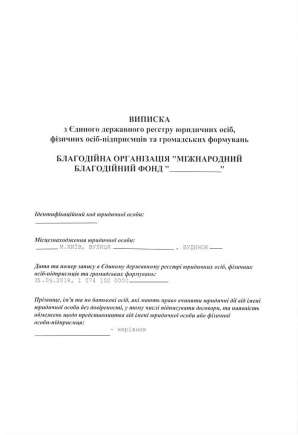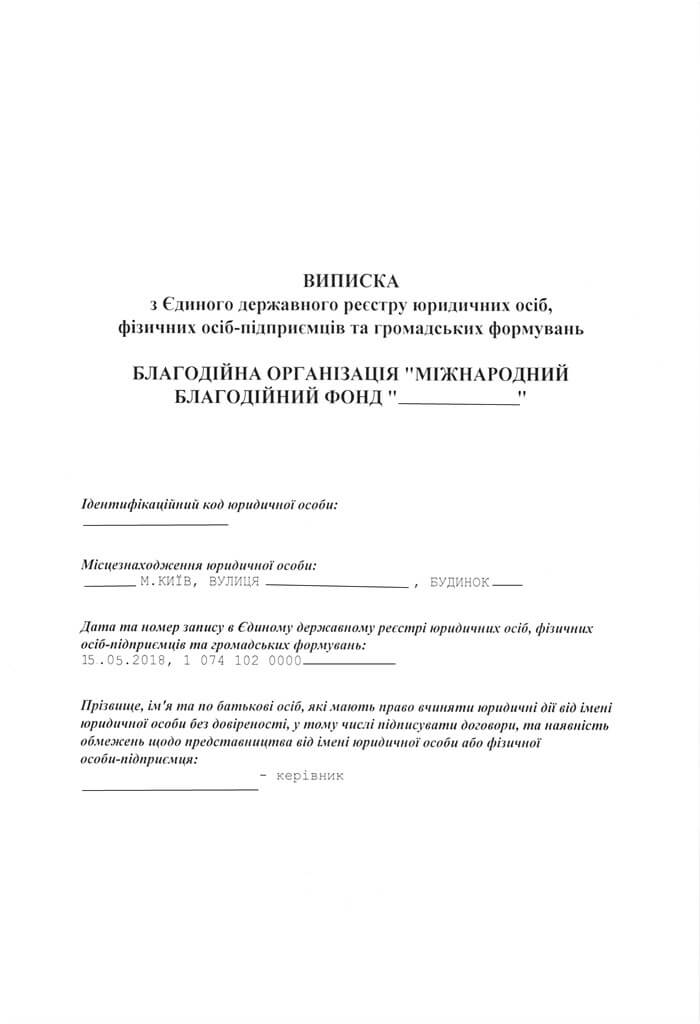Returnable financial aid to a charitable foundation: advice from an accountant
Cost of services:
Reviews of our Clients
In June 2020, we were contacted by the Client, a founder of the charitable foundation. He wanted to get advice of tax law specialists on how to overcome the situation that had arisen due to the unprofessionally organized process of providing financial assistance to the foundation.
Situation: The foundation has not received any donations for a long time, so the founder has several times provided it with reimbursable financial assistance to pay salaries to employees, in particular - the head of the charitable foundation.
When it was time to return the financial assistance under some of the agreements, the founder covered this gap with a new financial assistance. Thus, a vicious circle of financial benefits was formed: the charitable foundation had to take another assistance to return the first one.
Unfortunately, the situation is quite common, so we decided to answer the related questions and provide some advice on how to avoid problems within the context of the financial assistance to the charitable foundation.
You may also like: Legal Registration Of Non-Profit Organizations
Can the reimbursable financial assistance agreement be extended?
The legislation provides that non-refundable financial assistance is provided on an interest-free basis based on a agreement. If it is returned within a year, it is not considered income and therefore is not subject to taxation.
In this case, the period begins not from the day of signing the agreement, but from the day following the receipt of funds. The agreement itself can be extended, but the amount received will be considered income after one year.
What happens in case of failure to return the financial assistance in due time?
As mentioned above, if the reimbursable financial assistance is not returned within one year, it will be considered as income, which is subject to taxation. The basic income tax rate is 18%.
You may also like: How To Do Accounting Of Intangible Assistance To A Charity Organizations?
Here it can save the non-profit status of a charitable organization. But in accordance with subparagraph 133.4.2 of paragraph 133.4 of Article 133 of the Tax Code, the income of non-profit organizations should be used for the implementation of its purpose and objectives. And according to part 3 of Article 16 of the Law of Ukraine “On Charitable Activity and Charitable Organizations”, the size of administrative expenses should not exceed 20% of the annual income of the organization. Thus, a charitable organization may not allow any financial assistance to be used only for administrative expenses.
How can one avoid problems with receiving financial assistance to a charitable foundation?
Firstly, if the foundation does not conduct any activity, the manager should be transferred to work on a pro bono basis, providing for the appropriate provision in the charter. The ideal scenario is when the founder performs the duties of the manager. Such actions could help in the beginning to avoid the need to arrange a reimbursable financial assistance.
Secondly, in order not to continue a number of financial assistance in the future, it is worth concluding ф debt forgiveness agreement. Of course, the organization has income, which you will need to correctly reflect in the balance sheet, correctly report and, in case of its use not only for the purpose provided by subparagraph 133.4.2 of the Tax Code, pay the appropriate tax.
Having explained the situation to the Client, we have agreed on legal and accounting services to the charitable foundation so that it could avoid any problematic situations in the future.
We hope that you have found useful advice in this publication. If you need more detailed professional advice, please contact our specialists. Find more details here.
If you want to solve the problem yourself, read our related materials:
Our clients


















